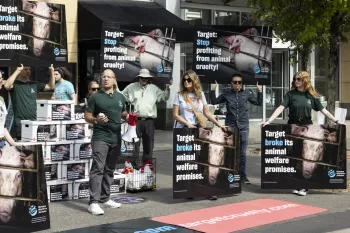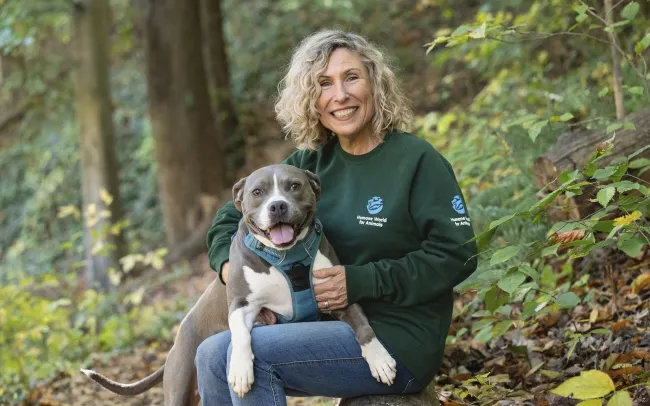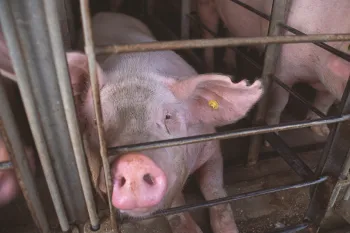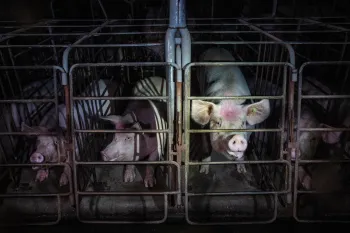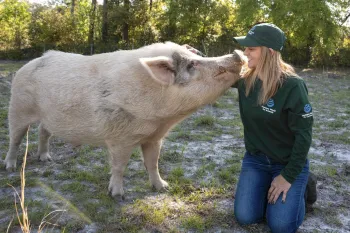This week, members of our Humane World for Animals team arrived at Target’s headquarters in downtown Minneapolis and delivered 15 large boxes containing signed petitions; more than 195,000 signatures called on the company to fulfill its long overdue commitments to do better by farmed animals.
Target made these promises and has had more than a decade to fulfil them.
In 2012, Target pledged to stop sourcing pork products from farms that confine pregnant pigs in gestation crates, cages so small that the pigs are unable to turn around or move more than a few inches in any direction for months.
In 2016, the company committed to selling only cage-free eggs by 2025.
Target has failed to deliver on either pledge.
As we delivered the petitions, Humane World for Animals staff and supporters, including allies from Minneapolis-based Compassionate Action for Animals, distributed leaflets and engaged with passersby about the urgency of eliminating these all too pervasive forms of animal suffering. During the same time frame, a mobile billboard circled downtown Minneapolis urging the public to visit the campaign website, TargetCruelty.com, and take a stand for animals.
On a typical egg factory farm, hens are crowded into barren wire cages where each bird endures a lifetime of confinement in a space smaller than a single letter-sized sheet of paper. Pregnant pigs locked in gestation crates suffer from muscle and bone deterioration as well as severe distress, gnawing on the bars of their small cages until their mouths bleed. Gestation crates are so small, the pigs can’t even turn around for the length of their pregnancy, approximately 114 days each time.
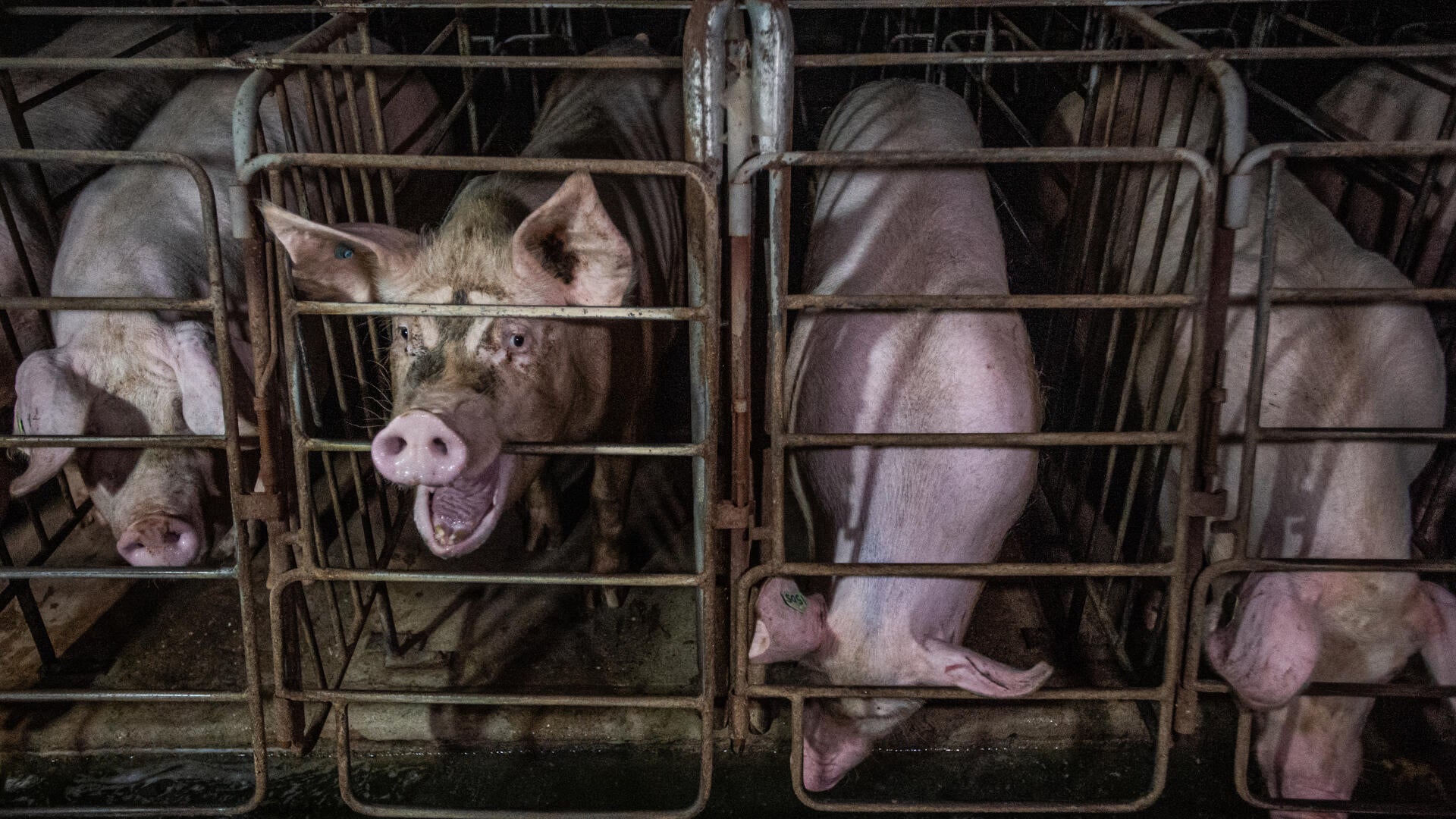
Jo-Anne McArthur/We Animals Media
There’s no excuse for Target to break its word to its customers and keep selling animal products from filthy, feces-encrusted cages and crates. It’s not how animals should be treated, and it’s the kind of indifference to animal suffering that the public wants to end. Fourteen states have already banned one or both forms of extreme confinement for egg-laying hens and pregnant pigs, and hundreds of companies—including Amazon, McDonald’s, Costco, Unilever, Nestlé and Minneapolis-based General Mills—have adopted similar policies within their U.S. operations.
Our critical message to Target, backed by more than 195,000 members of the public, is clear: extreme confinement of farm animals is not only cruel but completely unnecessary. We urge Target and other companies that have failed to meet their goals, like supermarket conglomerate Ahold Delhaize (which owns Food Lion, Giant, Stop & Shop and Hannaford), to listen to their customers and follow through on long overdue promises to eliminate animal cruelty in their supply chains. We know they can do better—just like all the large corporations who have already made, kept and implemented their commitments to animal welfare.
More than a decade has passed since Target made its pledge to change, yet millions of animals in its supply chain are still suffering in tiny cages. The time for action is now.
